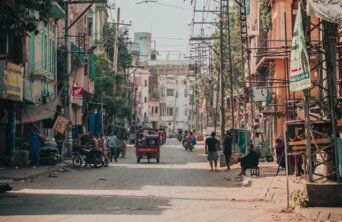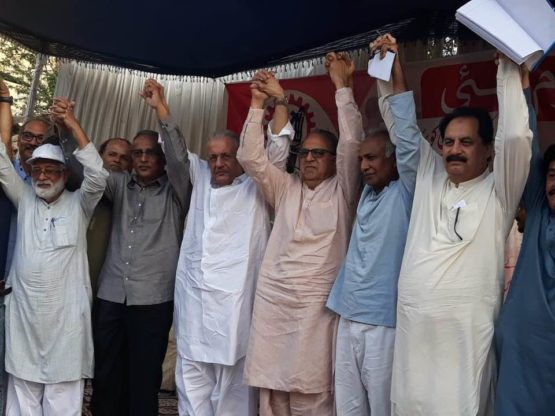- About
- Topics
- Story
- In-Depth
- Picks
- Opinion
- News
- Donate
- Signup for our newsletterOur Editors' Best Picks.Send
Read, Debate: Engage.
| topic: | Election |
|---|---|
| located: | Pakistan |
| editor: | Shadi Khan Saif |
Panicked by skyrocketing debt and inflation, Pakistan's leaders seek to increase revenue through taxes and loans while ignoring the impact of climate change on their country's economy and people.
The civilian government has vowed to raise taxes and crack down on utility defaulters in the wake of nationwide protests against rising tariffs. The top military leadership is touring rich Gulf states to lobby for funds. More taxes would further slow the economy and put unbearable pressure on the households. More loans would mean more interest payments and the eventual value depletion of the currency.
In current circumstances, raising taxes or borrowing more makes little sense, especially when the country is losing billions every year due to natural events caused by climate change, like last year's floods.
As the critical national elections approach, the tangle of economic meltdown and corruption issues are what the mainstream political parties are pitching to voters. Yet, highlighting the environment as a vital issue could rally the masses for a new, sustainable way of life.
Transitioning the energy sector from fossil fuels to green resources alone would mitigate the severity of climate change and turn the table on the country's persistent cycle of rising utility tariffs and subsequent unrest.
Pakistan is no stranger to disasters induced by climate change, and its economy has suffered for it. External debt surged to $124.3 billion last year, of which it had to spend $2.44 billion on debt servicing, interests, and surcharges.
If Pakistan is serious about halving its emissions by 2030, it should take note of innovative nations like Japan and Iceland, who are implementing inspiring ideas to reduce plastic use, cut back on luxury spending, and practice austerity.
The political parties can win votes by onboarding expert environmentalists with indigenous knowledge to conserve energy, promote sustainability, and lobby internationally for Pakistan as one of the worst climate change victims.
Image by Adeel Shabir.

